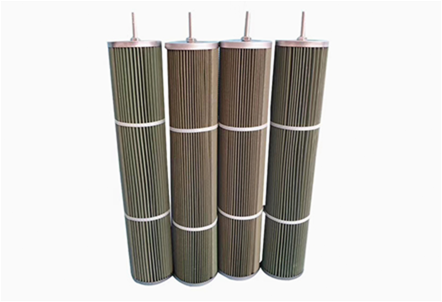 Tel:
+8615930870079
Tel:
+8615930870079
אוג . 13, 2024 16:14 Back to list
Choosing the Right HEPA Cartridges for Your Air Purifier and Allergy Relief Solutions
Understanding HEPA Cartridges A Key Component in Air Filtration
In our modern world, maintaining clean air quality is essential for health and wellness. One of the most effective ways to achieve this is through the use of HEPA (High-Efficiency Particulate Air) cartridges in various air filtration systems. These cartridges play a critical role in trapping harmful particles and ensuring that the air we breathe is as clean as possible.
What are HEPA Cartridges?
HEPA cartridges are advanced air filters designed to capture airborne particles as small as 0.3 microns with an efficiency of 99.97%. This small particle size includes dust, pollen, pet dander, mold spores, and even some bacteria and viruses. The effectiveness of HEPA filtration is due to the dense arrangement of fibers within the cartridge, which creates a maze-like structure that traps pollutants while allowing clean air to pass through.
How Do HEPA Cartridges Work?
The operation of a HEPA cartridge involves three main mechanisms interception, inertial impaction, and diffusion
.1. Interception occurs when particles follow the airstream and come into contact with fibers. When a particle collides with a fiber, it sticks to it and is removed from the air. 2. Inertial impaction happens when larger particles cannot change direction as quickly as the air flowing around them. This causes them to collide with the fibers and become trapped.
3. Diffusion involves very small particles that move randomly due to Brownian motion, increasing their chances of colliding with the filter fibers.
These mechanisms work together to ensure that air passing through a HEPA cartridge is significantly cleaner than the air that entered it.
hepa cartridges

Applications of HEPA Cartridges
HEPA cartridges are commonly used in various environments, including homes, offices, hospitals, and industrial settings. In residential air purifiers, they help remove allergens, ensuring that individuals, especially those with asthma or allergies, can breathe easier. In hospitals, HEPA filters are crucial for maintaining sterile environments, protecting patients from airborne infections.
Additionally, HEPA filtration is utilized in vacuum cleaners to trap dirt and allergens, preventing them from being released back into the air during cleaning. Industries dealing with sensitive products, such as pharmaceuticals and electronics, also rely on HEPA filtration to maintain the cleanliness of their production environments.
Importance of Regular Replacement
To maintain optimal performance, it is vital to replace HEPA cartridges regularly. Over time, the filter can become saturated with trapped particles, which can lead to a reduction in air flow and overall efficiency. The frequency of replacement depends on usage and the specific environment, but many manufacturers recommend every 6 to 12 months.
Ignoring replacement can result in decreased air quality and potential health risks. Clean air is essential, and ensuring that HEPA cartridges are functioning optimally will help achieve that goal.
Conclusion
HEPA cartridges are an indispensable part of air filtration systems. Their ability to capture nearly all airborne particles makes them invaluable in promoting better air quality and protecting health. Whether used in household air purifiers, vacuum cleaners, or industrial applications, understanding the importance of HEPA cartridges is crucial for anyone concerned about maintaining clean, healthy air. Regular maintenance and timely replacement of these cartridges are essential practices for ensuring their effectiveness and longevity, allowing us to breathe easier in an increasingly polluted world.
-
Nano Fiber Technology: Revolutionizing Cartridge Dust Collector FiltersNewsAug.06,2025
-
How Activated Carbon Air Cartridges Eliminate OdorsNewsAug.06,2025
-
Dust Filter Cartridge Handling Fine Particulate MatterNewsAug.06,2025
-
Cartridge Dust Collector Filter for Welding Fume ExtractionNewsAug.06,2025
-
Activated Carbon Filter Cartridge Effectiveness Against VOCsNewsAug.06,2025
-
Activated Carbon Air Filter Cartridge Benefits ExplainedNewsAug.06,2025

 Email:
Email:





